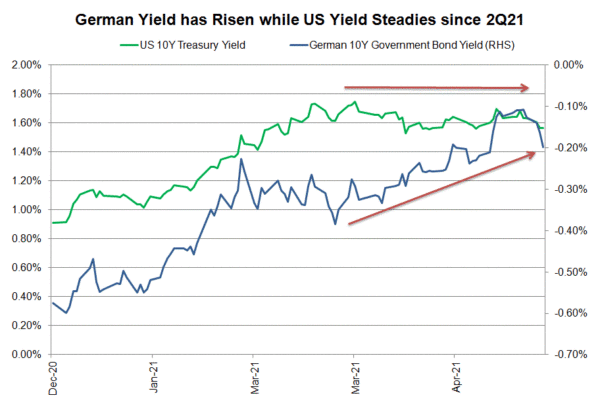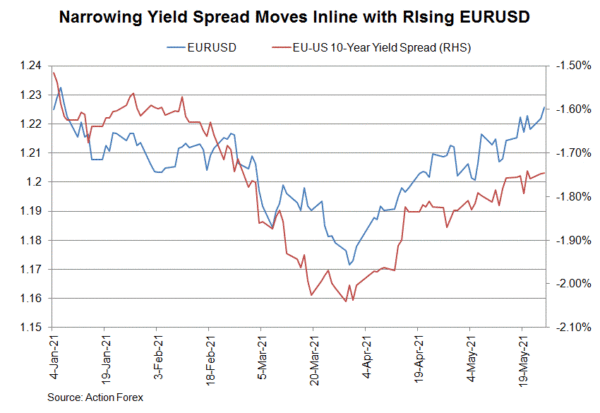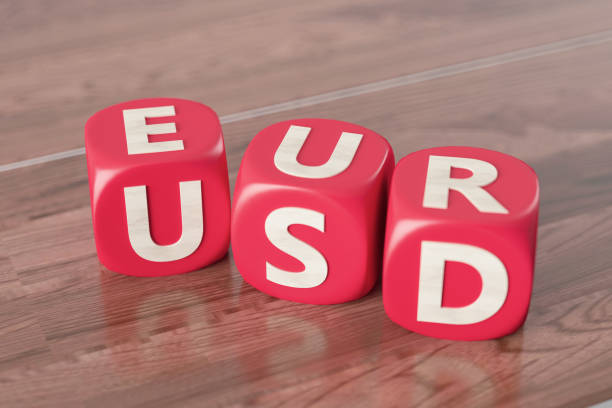Following a weak first quarter, the strength in EURUSD has gathered momentum. The pair is the second strongest among majors quarter-to-date. A more upbeat economic outlook, heightened inflation forecasts and expectations of ECB’s tapering are key driving forces of the recent rally.
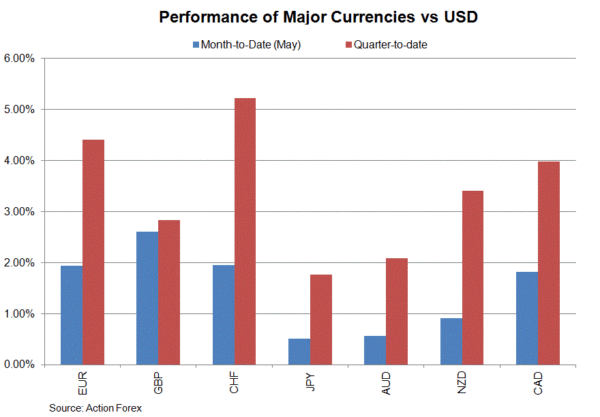
Indicators Pointing to Stronger 2Q21
Leading indicators have pointed to an upbeat 2Q21. The flash reading of Eurozone PMI soared to 56.9 in May, from 53.8 a month ago. The services PMI also gained +4.6 points to a 35-high of 55.1. While slipping, the manufacturing PMI stayed strong at 62.8. The accompanying report suggested that demand for goods and services surged at the sharpest rate for 15 years across the bloc amid reopening of the economy. It added that “growth would have been even stronger had it not been for record supply chain delays and difficulties restarting businesses quickly enough to meet demand, especially in terms of re-hiring”.
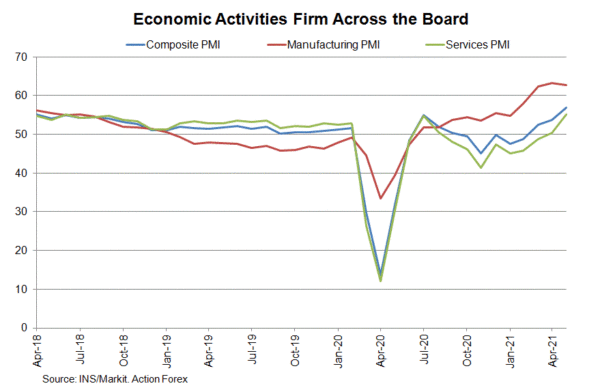
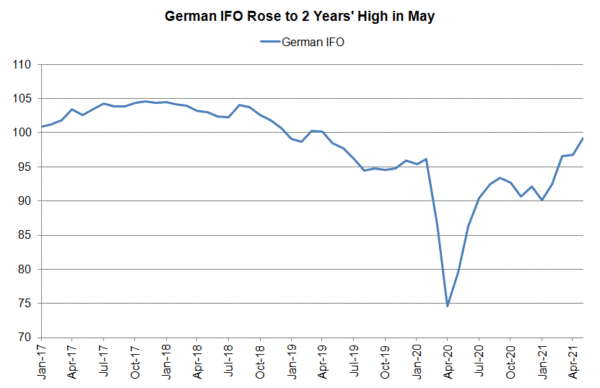
Vaccination rollout and stabilization of the pandemic in the region have lifted confidence. Germany’s Ifo index increased rose to 99.2 in May, from 96.6 a month ago. This marks the highest level in 2 years. Meanwhile, the current assessment index rose to 95.7, up from 94.1 and the expectations index expanded to 102.9, up from 99.5. Both readings came in higher than consensus. As noted in the accompanying report, “companies were more satisfied with their current business situation. They are also more optimistic regarding the coming months. The German economy is picking up speed”.
Inflation Expectations Heighten
Headline CPI improved to +1.6% y/y in April, from +1.3% a month ago. While this has come closer to central bank’s target of “close to, but below +2%”, core CPI remained soft (+0.8% y/y in April). Policymakers have shrugged off the rise in inflation, noting that it was temporary and should trigger no change in the monetary policy. However, inflation expectations have strengthened further. The increased in Eurozone’s 5-year, 5-year swap rate has been accelerating and rose to multi-year high of about 1.7% this week.
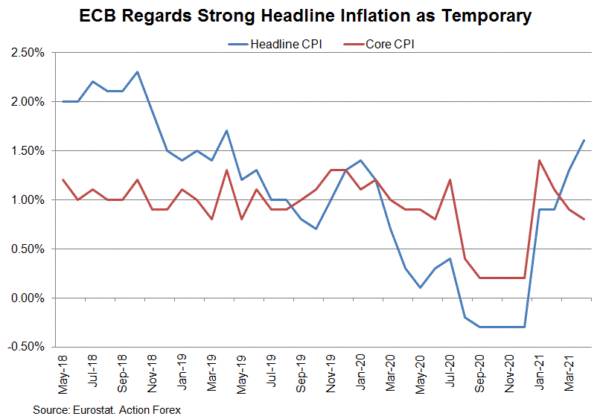
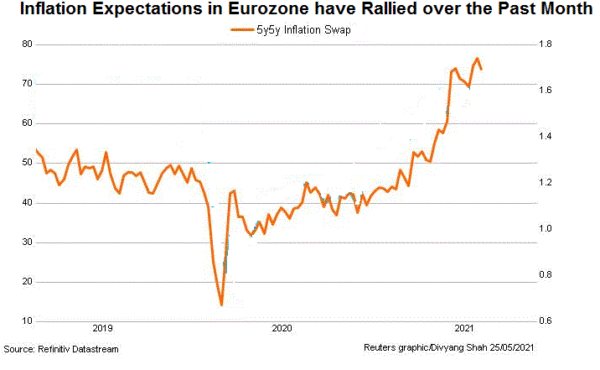
ECB Tapering
At April’s ECB meeting, President Christine Lagarde affirmed that the “significantly increased” pace of asset purchases in the PEPP should continue “without any wavering”. She also noted that discussions about tapering phasing out of PEPP purchases were “simply premature”. Earlier this month, Francois Villeroy de Galhau, governor of the French central bank, attempted to water down comments from some hawkish members who suggested that the pace of asset purchase can slow. However, we expect discussions of the topic cannot be avoided if the rise in inflation (and inflation expectations) is more than temporary and the economy continues to improve.
Bond yields have reflected market expectations of tighter financial conditions. Indeed, the rise in Eurozone’s bond yield has gained traction since late March, while US yield steadied. The narrowing of yield spread have facilitated recent rally in the euro.
